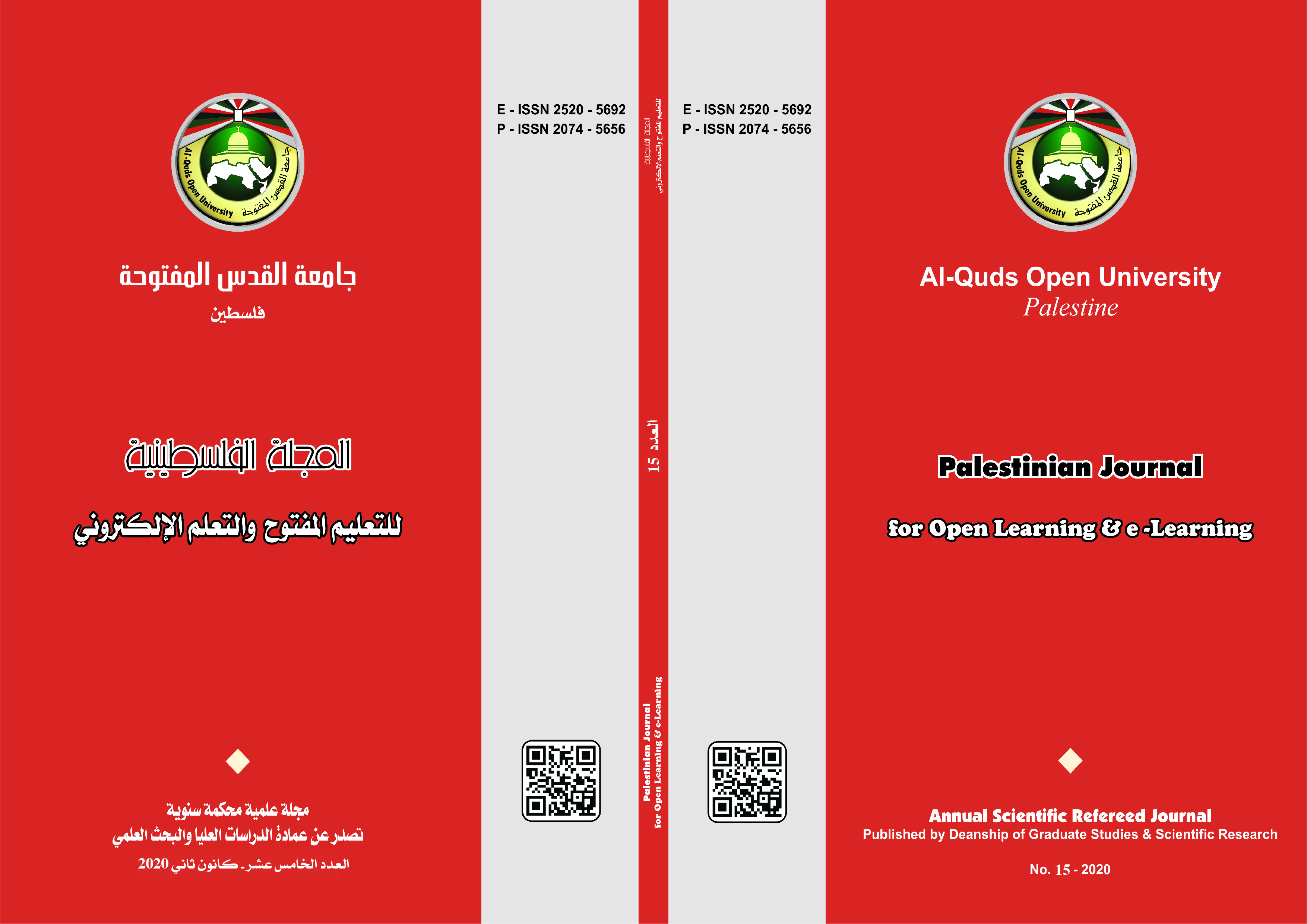Students’ Engagement in English as a Foreign Language Course: Literature Review of Flipped Learning
DOI:
https://doi.org/10.33977/0280-009-015-006Keywords:
English as a Foreign Language - English as a Second Language - Students’ Engagement - Flipped Learning - Blended LearningAbstract
This study aimed to review forty-four research papers published between 2015 and 2019 to identify the best strategies for learning and teaching the English language in Palestinian universities to non-native speakers, as well as to explore ways to provide learners with self-learning skills. The study answered the following main question: To what extent does the blended learning that includes face-to-face meetings and electronic activities enhance students’ engagement in the process of learning English as a Foreign Language (EFL) in universities?
The analysis results showed that 74% of these studies recommend adopting the flipped learning strategy in teaching EFL in universities, as it provides an appropriate environment for implementing active learning and Project-Based Learning (PBL), which increases students’ interaction and reduces their withdrawal or failure rate. The analysis results showed the difficulties that students and teachers face in implementing flipped learning. This includes the fact that many students and teachers lack computers and good Internet connection in their homes and the nonexistence of Internet connection in some rural areas. In addition to these difficulties, there is the resistance of teachers and students, sometimes, to use the modern learning strategies and their preference for traditional learning. Furthermore, most teachers face difficulties in managing time and designing content and activities for the flipped classroom.
The study recommended that further research be done on how to fully implement flipped learning online and not only through blended learning but also face-to-face lectures.
Published
How to Cite
Issue
Section
License
- The editorial board confirms its commitment to the intellectual property rights
- Researchers also have to commit to the intellectual property rights.
- The research copyrights and publication are owned by the Journal once the researcher is notified about the approval of the paper. The scientific materials published or approved for publishing in the Journal should not be republished unless a written acknowledgment is obtained by the Deanship of Scientific Research.
- Research papers should not be published or republished unless a written acknowledgement is obtained from the Deanship of Scientific Research.
- The researcher has the right to accredit the research to himself, and to place his name on all the copies, editions and volumes published.
- The author has the right to request the accreditation of the published papers to himself.







2.png)






_2.png)

